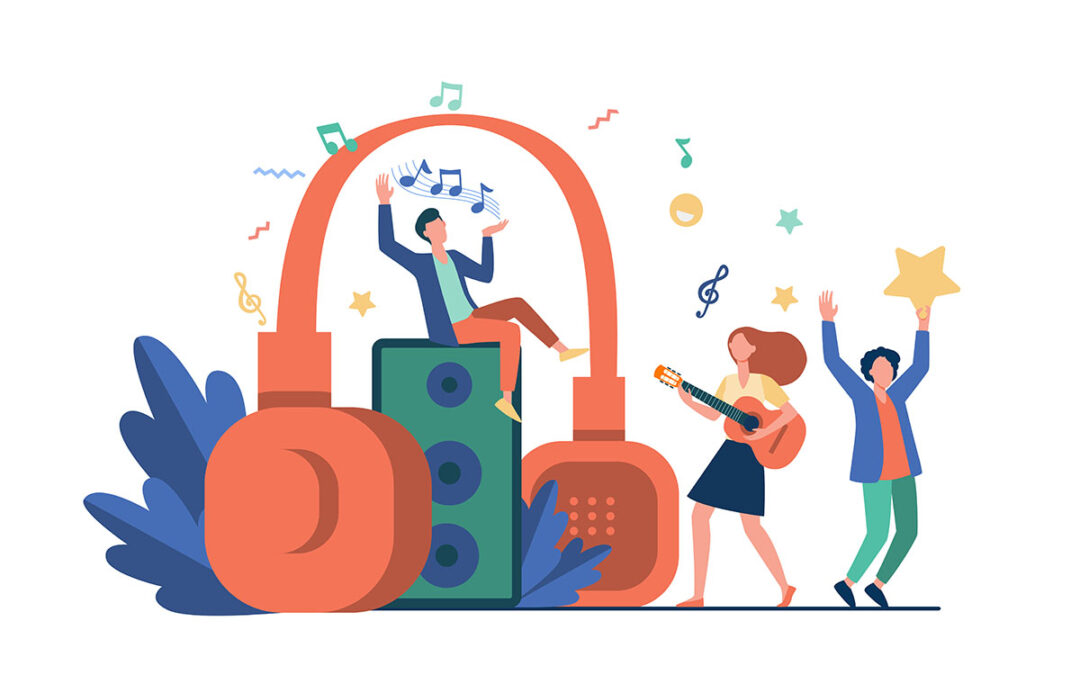After we understood what music therapy really is from our previous article, in the present article we will talk about the techniques and benefits involved with the same.
Music therapy is an allied health profession and one of the expressive therapies, consisting of a process in which a music therapist uses music and all of its facets-physical, emotional, mental, social, aesthetic, and spiritual—to help clients improve their physical and mental health. Music therapists primarily help clients improve their health in several domains, such as cognitive functioning, motor skills, emotional development, social skills, and quality of life.
Music therapy sessions are often conducted on a one-on-one basis, but when required they can participate in group sessions. The primary requirement of the session is a room that has a calm environment with no outside distractions. The basic techniques that are involved while working with a music therapist firstly, includes identifying one’s goals. For example, if you’re experiencing depression, you may hope to use music to naturally improve your mood and increase your happiness. You may also want to try applying music therapy to other symptoms of depression like anxiety, insomnia, or trouble focusing. Following up during the therapy session, clients are made to listen to songs of different genres of music, play a musical instrument or are even allowed to compose their own songs. The next step follows performing that music and either singing or dancing to it, the therapist eventually asks the client to tune into their emotions, that is understanding their feelings and helping them to direct their own actions. For example – if you are angry you might want to play or sing aloud fast or dissonant chords. This process aids clients to explore ways to change how they are feeling currently. For example – If you express anger or stress, your music therapist might respond by having you listen to or create music with slow, soft, soothing tones.
According to American Music Therapy Association (AMTA) music therapy is seen to increase positive feelings of calmness, euphoria, emotional intimacy, confidence and empowerment in people.
The notable benefits of music therapy include –
- Activation of regions of the brain that influence things like memory, emotions, movement, sensory relay, some involuntary functions, decision-making, and reward (E. Altenmuller, G. Schlaug, 2015).
- Fulfill social needs for older adults having depressive symptoms who are living in group settings such as nursing homes or old age homes etc. (J. Werner, T. Wosch & C. Gold, 2017).
- Music also helps to lower heart rate and blood pressure
- Relax muscle tension
- Release endorphins as musical performance elevate pain threshold and have a positive effect on people (K. Kaskatis, V. Barra, 2012).
- Relieve stress and encourage feelings of calm
- Strengthen motor skills and improve communication for children and young adults who have developmental and/or learning disabilities
Research has also shown the effectiveness of music on people suffering from dementia and other memory-related disorders (Y.S. Chang, C.Y. Yang et al., 2015). Music therapy often is used to help children and adolescents to develop their identities, improve their existing communication skills, it also helps them to learn to regulate their conditions, recover from childhood trauma if any and most importantly music allows them to self-reflect on themselves.
The effectiveness of music therapy in various clinical problems can also be noted down:
Such as, music therapy is one of the effective components of depression treatment (S. Aalbers, R.E. Freeman et al., 2017). It was seen when music therapy was combined with antidepressants and psychotherapy it was seen to be the most useful. When used in combination with other forms of treatment, music therapy may also help reduce obsessive thoughts, depression, and anxiety in people with OCD. Many people suffering from insomnia or other sleep disorders also report that music helps them to fall asleep (P.Vuust, P. Jennum, J. Koenig, 2015). For pain management among all age groups, music is seen to be one of the effective strategies as well. Music therapy may help people by helping them to cope with physical pain and therefore reduce the painful experience associated with chronic conditions, labour and childbirth as well as surgery. Music therapy has been shown to help reduce anxiety in people with cancer who are starting radiation treatments. It may also help them cope with the side effects of chemotherapy, such as nausea (A. Rossetti, M. Chadha, B.N. Torress et al., 2017).
In conclusion, it is important to understand that music therapy becomes a valuable component of a treatment plan for various mental health disorders only when combined with either appropriate medications, psychotherapy or other interventions.
– Urveez Kakalia and Annesha Datta.

